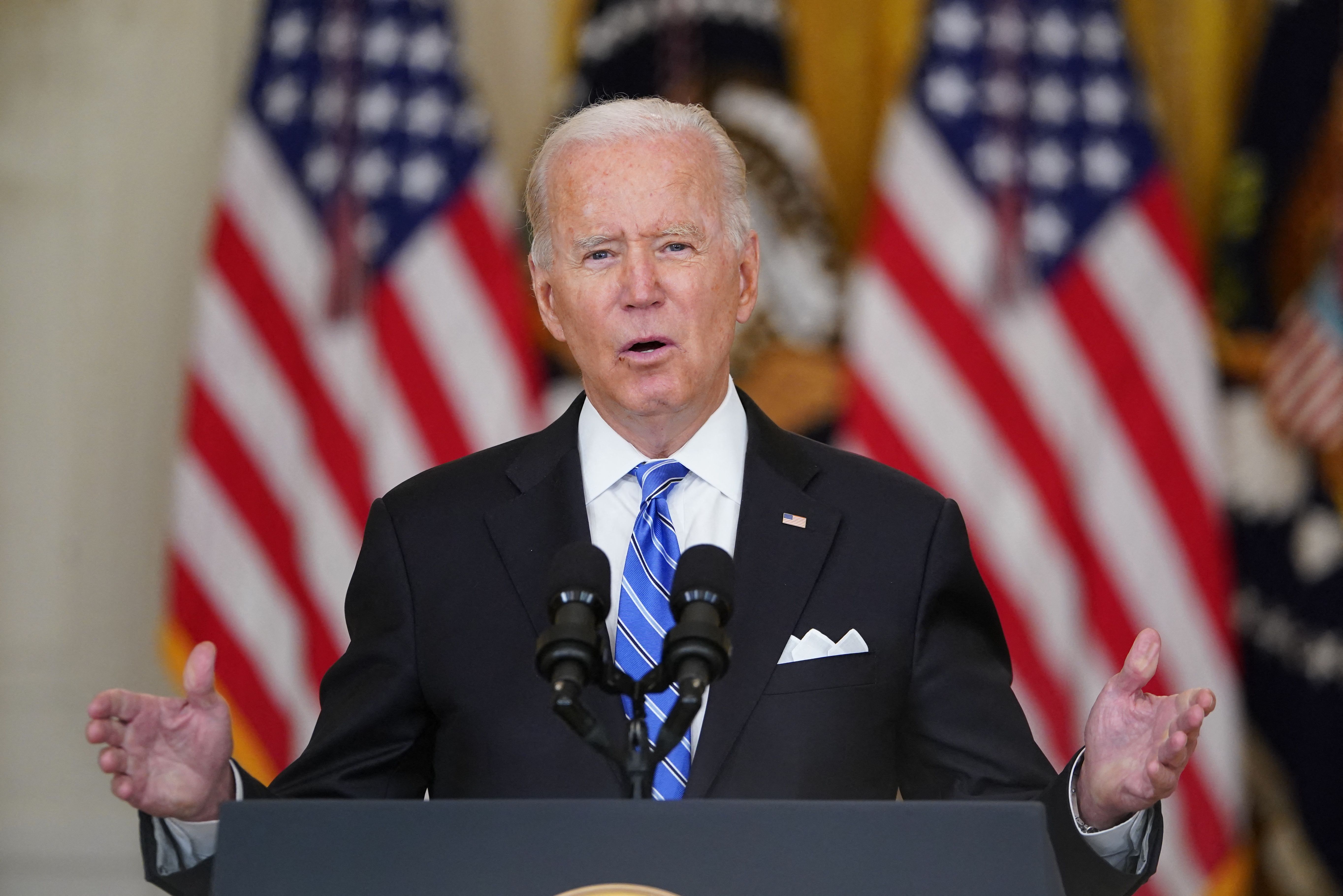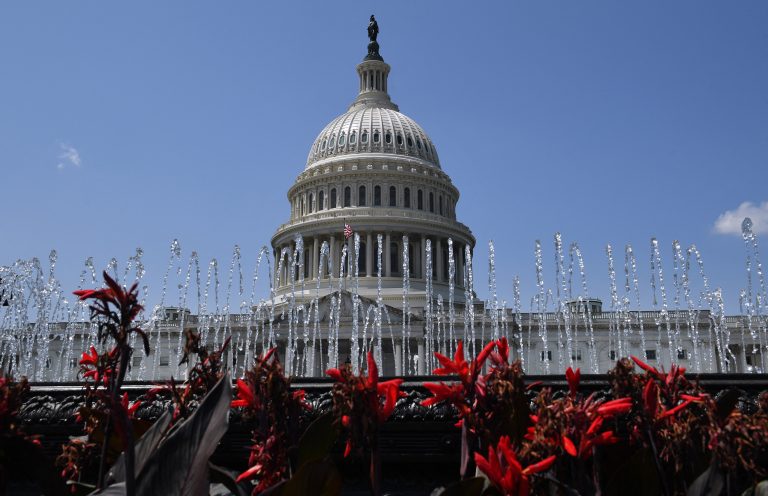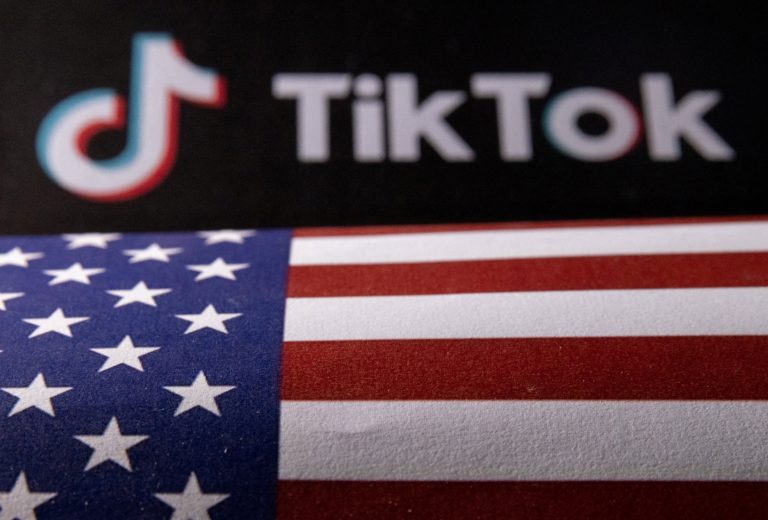The U.S. Senate has passed the $1.2 trillion infrastructure package after several weeks of debate. The bill, called the Infrastructure Investment and Jobs Act, was passed 69 to 30 on Tuesday, Aug. 10, with 19 Republicans voting in support and one abstention.
The infrastructure plan, which includes $550 billion in new federal spending over a period of five years, sets aside $110 billion for roads, bridges, and related infrastructure, $66 billion for passenger and freight rail, $65 billion for rebuilding the electric guild, $65 billion to expand broadband internet lines, and $55 billion for water pipes.
President Joe Biden called the infrastructure plan a “historic investment,” claiming that America is on the cusp of an “infrastructure decade” that will transform the nation.
“First of all, I want to thank the group of senators — Democrats and Republicans — for doing what they told me they would do. The death of this legislation was mildly premature, as reported. They said they were willing to work in a bipartisan manner, and I want to thank them for keeping their word. That’s just what they did,” Biden said in a White House statement.
Senate Majority Leader Chuck Schumer, a New York Democrat, said that while the bill “has taken quite a long time” with “detours and everything else,” this will do a whole lot of good for America, and the Senate can be proud it has passed this.”
Success
You are now signed up for our newsletter
Success
Check your email to complete sign up
Minority leader Mitch McConnell (R-KY) was among the Republicans who voted in favor of the bill, despite widespread opposition to and criticism of the bill within the party. Others in the GOP who voted for the bill include Utah’s Mitt Romney, Lisa Murkowski of Alaska, and 87-year-old Chuck Grassley from Iowa.
On Monday, Aug. 9, Biden and the Democratic Party also proposed a $3.5 trillion spending package. They plan to pass it via budget reconciliation, which would require just 51 Senate votes.

Five-year spending plan for rail, internet, climate, ‘equity’
Provisions in the Infrastructure Investment and Jobs Act call for about $19 billion in grants for state-run Amtrak, $1.3 billion for the Federal Railroad Administration, and $225 million for research and development by the Administration. An additional $7.5 billion is to be allocated in $1.5-billion installments over the next five years for the development of intercity rail.
Several sections of the Act focus on providing high-speed internet to low-income and remote rural areas, allocating tens of billions to these efforts. $14.2 billion goes to the Affordable Connectivity Program, specifically geared for students. Two billion dollars will go to Rural Utility Services, which includes distance learning, telemedicine, and broadband internet.
Nearly $50 billion is earmarked for Broadband Equity, Access, and Deployment Program, Broadband Broadband Connectivity Fund, and “Digital Equity.”
Sen. Tommy Tuberville (R-AL) said that the legislation is “loaded” with projects that have little to do with “real infrastructure.” For example, the bill places $50 million to reducing truck emissions at port facilities, $100 million to research for reducing the temperatures of inner-city streets, and $13 billion to improve air quality and access to alternative fuel types across the U.S., and carbon emissions reduction.
Tuberville also accused the bill of not giving Alabama “a fair slice of the pie” while pushing more debt onto the state’s taxpayers. Tuberville noted that the Congressional Budget Office had calculated the legislation to add a $256 billion deficit in America’s account over a 10-year period.
The Act has also been criticized for containing provisions less pertinent to infrastructure and more relevant to race, demography, and even taxes. It calls for “quantitative analysis of vulnerable road user fatalities and serious injuries” [which] “considers the demographics of the locations of fatalities and serious injuries, including race, ethnicity, age, income, and age.”
Republican Senator Josh Hawley called the infrastructure package a “woke, leftist bill” that is “full of left-wing politics.” He said that the bill was wasteful as it allocated money for building highways in Canada and supported critical race theory — the Marxism-derived doctrine often described as discriminatory and divisive. The bill classifies women working in the transportation industry as “socially and economically disadvantaged.” It states that women and racial minorities are kept out of federally assisted transportation market due to discrimination.
“I just voted NO on the first installment of Joe Biden’s massive left wing agenda – no to gender identity mandates, no to the Green New Deal, no to CRT ‘racial equity’ mandates, no to decimating the energy sector – YES to America,” Hawley tweeted.
Drivers to be monitored, taxed by the mile
Additionally, the bill mandates new regulations in the auto industry, even calling for federal research into limousines. Cars produced three years from now must include measures to prevent collisions with wild animals, as well as “advanced drunk and impaired driving prevention technology.” It is unclear how this capability is to be achieved.
Included in the bill is a call for federal taxation based on mileage. This would be a “per-mile user fee” calculated based on tools such as the use of third-party on-board diagnostic devices, smartphone apps, telemetric data collected by vehicle manufacturers, and data obtained by car insurance companies.
The bill now heads to the Democrat-controlled House of Representatives. House Speaker Nancy Pelosi has indicated that she will not take up the infrastructure bill unless the Senate also passed the $3.5 trillion bill.
In a statement released on Aug. 10, former President Donald Trump criticized McConnell, saying that “nobody will ever understand” why the GOP leader allowed the bill to get passed.
“I have quietly said for years that Mitch McConnell is the most overrated man in politics—now I don’t have to be quiet anymore. He is working so hard to give Biden a victory, now they’ll go for the big one, including the biggest tax increases in the history of our Country,” the statement said.
Trump also said that by supporting the Infrastructure Investment and Jobs Act, McConnell has “given up all of his leverage” for the “big whopper of a bill” that will follow, referring to the $3.5-trillion bill the Democrats proposed on Monday.
Leo Timm contributed to this report.













